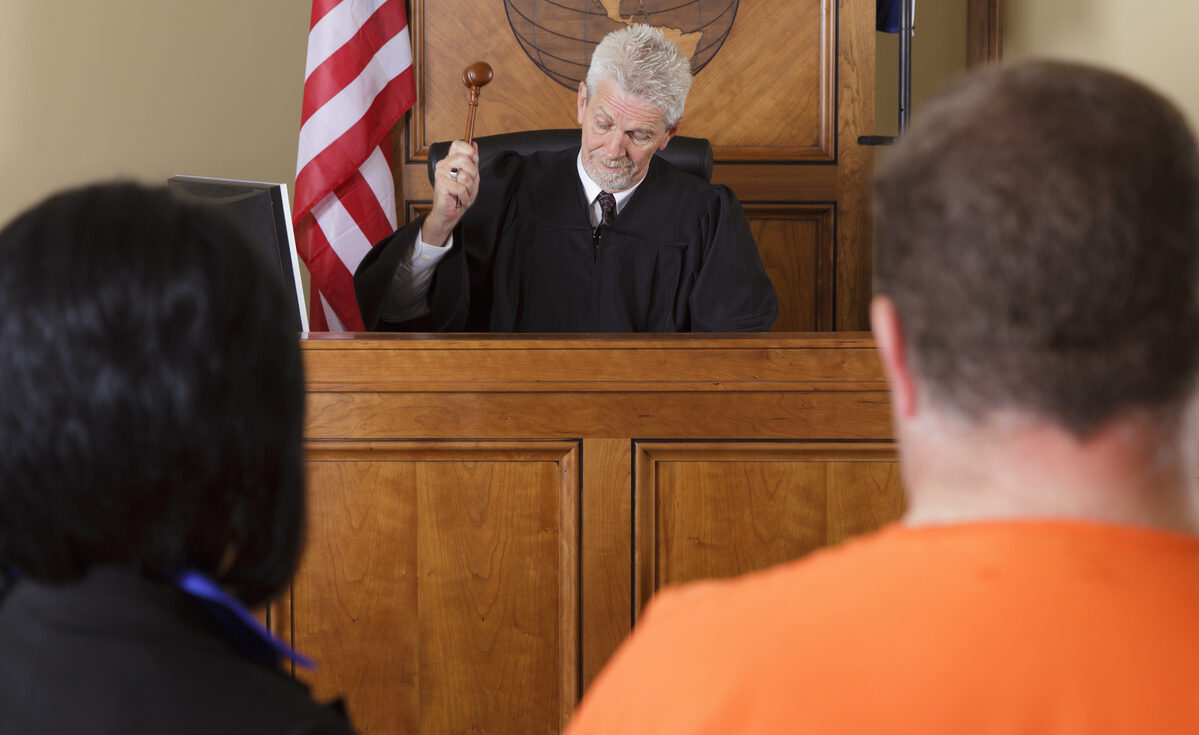What is a Plea Bargain in Wisconsin?
A plea bargain is a legal agreement where, in return for the dismissal of additional charges, the defendant consents to plead guilty to a lesser offense or accept a reduced sentence. Plea agreements can hasten case resolution, conserving time, money, and emotional strain.
However, accepting a plea bargain means giving up certain rights. A knowledgeable attorney can explain these implications and guide you in making the best decision for your situation.
How Does the Plea Bargain Process Work?
The plea bargain process in Wisconsin typically involves negotiation between the defendant’s attorney and the prosecutor. The prosecutor, who represents the state, will offer a deal to the defendant. This deal usually involves the defendant pleading guilty to a lesser charge or agreeing to a particular sentence in exchange for the dismissal of other charges.
The judge has the final say in accepting or rejecting a plea bargain. They will take into account the nature of the crime, the defendant’s criminal history, and the interests of justice before making a decision.
What Happens After a Plea Bargain is Accepted?
Once a plea bargain is accepted, the next steps in the process depend on the specifics of the agreement. In most cases, you will be required to appear in court to formally enter your guilty plea. The judge will ask you questions to ensure that you understand the plea agreement and that you are entering the plea voluntarily.
Once the plea is entered, the judge will impose a sentence. This could happen immediately, or there may be a separate sentencing hearing at a later date. The sentence will be in line with the terms of the plea agreement, which could include jail time, fines, probation, community service, or other penalties.
Once you enter a guilty plea, you are effectively convicted of the crime. This conviction will appear on your criminal record and can have significant implications for your future.
What are the Pros and Cons of Plea Bargains?
Plea bargains offer advantages to both the defendant and the state. For the defendant, they can lead to a lesser charge, a shorter sentence, and the chance to bypass a public trial.
It can also provide a quick resolution to a case, saving the defendant time and money.
On the other hand, the state benefits from plea bargains as they help manage the caseload of the courts and ensure that justice is served in a timely manner.
However, plea bargains also have their drawbacks. A defendant might feel pressured to accept a plea bargain out of fear of a harsher sentence if they go to trial. Additionally, by accepting a plea bargain, a defendant waives their right to a trial, which means they give up the opportunity to potentially be acquitted of the charges.
What Factors Influence the Outcome of a Plea Bargain?
Several factors can influence the outcome of a plea bargain in Wisconsin. These include the seriousness of the charges, the strength of the evidence, the defendant’s criminal history, and the prosecutor’s willingness to negotiate.
For instance, if the evidence against you is strong, the prosecutor may be less inclined to offer a lenient plea bargain. Conversely, if the evidence is weak or if there are issues with how it was obtained, the prosecutor may be more willing to negotiate a favorable plea deal.
Your criminal history can also play a significant role. If you have a record of previous convictions, the prosecutor may be less likely to offer a plea bargain, or they may propose a harsher sentence. On the other hand, if you have no prior convictions, you may be able to negotiate a more favorable deal.
An experienced attorney can help you understand these factors and how they might impact your case. They can leverage their skills in negotiation to secure the most favorable result for you.
What Should I Do if I’m Offered a Plea Bargain?
If you’re offered a plea bargain, consult with an attorney before making any decisions. They can assist you in evaluating the advantages and disadvantages, considering factors such as the strength of the evidence against you, the potential penalties if you go to trial and are convicted, and your personal circumstances.
Remember, a plea bargain is not your only option. You have the right to reject the offer and proceed to trial if you believe it’s in your best interest. An attorney can guide you through this decision-making process, ensuring that you make an informed choice.
How Can a Plea Bargain Affect My Criminal Record?
Accepting a plea bargain can have lasting effects on your criminal record. When you plead guilty as part of a plea bargain, you are essentially admitting to a crime. This admission will appear on your criminal record, which can have serious implications for your future, including difficulties in finding employment, housing, or obtaining certain professional licenses. However, in some cases, a plea bargain can result in a lesser charge appearing on your record, which may be less damaging than a more serious charge.
Can a Plea Bargain Be Reversed?
Once a plea bargain is accepted by the court and the defendant pleads guilty, it is generally difficult to reverse. Wisconsin law allows a defendant to withdraw a guilty plea only under certain circumstances, such as if the plea was not knowingly, voluntarily, or intelligently made, or if the plea agreement was violated. The process of withdrawing a guilty plea is complex and requires a strong legal argument.
How Can an Attorney Help With a Plea Bargain?
An attorney can be instrumental in navigating the plea bargaining process. They will represent you in negotiations with the prosecutor, striving to achieve the most favorable outcome. Their expertise in the law and insight into your specific situation will guide their advice on whether to accept or decline a plea deal.
If you’re considering a plea bargain, call West & Dunn today at 608-490-9449 for a free consultation.

